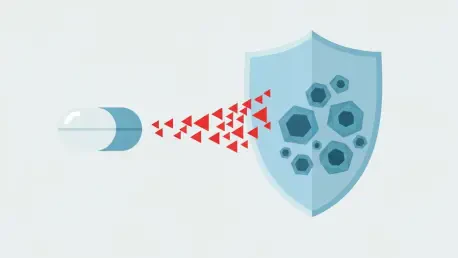
Long before a name is forgotten or a memory fades, a silent war is waged within the brain, and a new pharmaceutical weapon may have just arrived to fight it on its own terms. This battleground, previously invisible, is now the focus of groundbreaking research from Northwestern University, where

We are joined today by biopharma expert Ivan Kairatov to discuss a groundbreaking development in the fight against a virus that over 80% of the global population carries, often without a clue: human cytomegalovirus, or HCMV. While dormant for most, this stealthy pathogen poses a life-threatening

In the high-stakes world of biopharmaceutical development, the line between a groundbreaking success and a costly failure is often defined by the unforgiving logic of statistical significance, a reality Nektar Therapeutics recently confronted with its autoimmune drug, rezpegaldesleukin. The company

For individuals born with the rare and debilitating genetic disorder Wiskott-Aldrich syndrome, the hope for a cure has long been shadowed by the immense challenge of finding a perfectly matched stem cell donor. This condition, which severely compromises the immune system and blood clotting, leaves

The intricate challenge of moving living, three-dimensional biological structures across countries and continents without compromising their integrity has long been a significant barrier to advancing global biomedical research. The development of non-cryogenic transport solutions represents a

The landscape of oncology funding is undergoing a profound and strategic transformation, moving decisively away from supporting purely theoretical research toward projects with a clear and direct path to real-world application. Grant-making organizations are now signaling a clear preference for